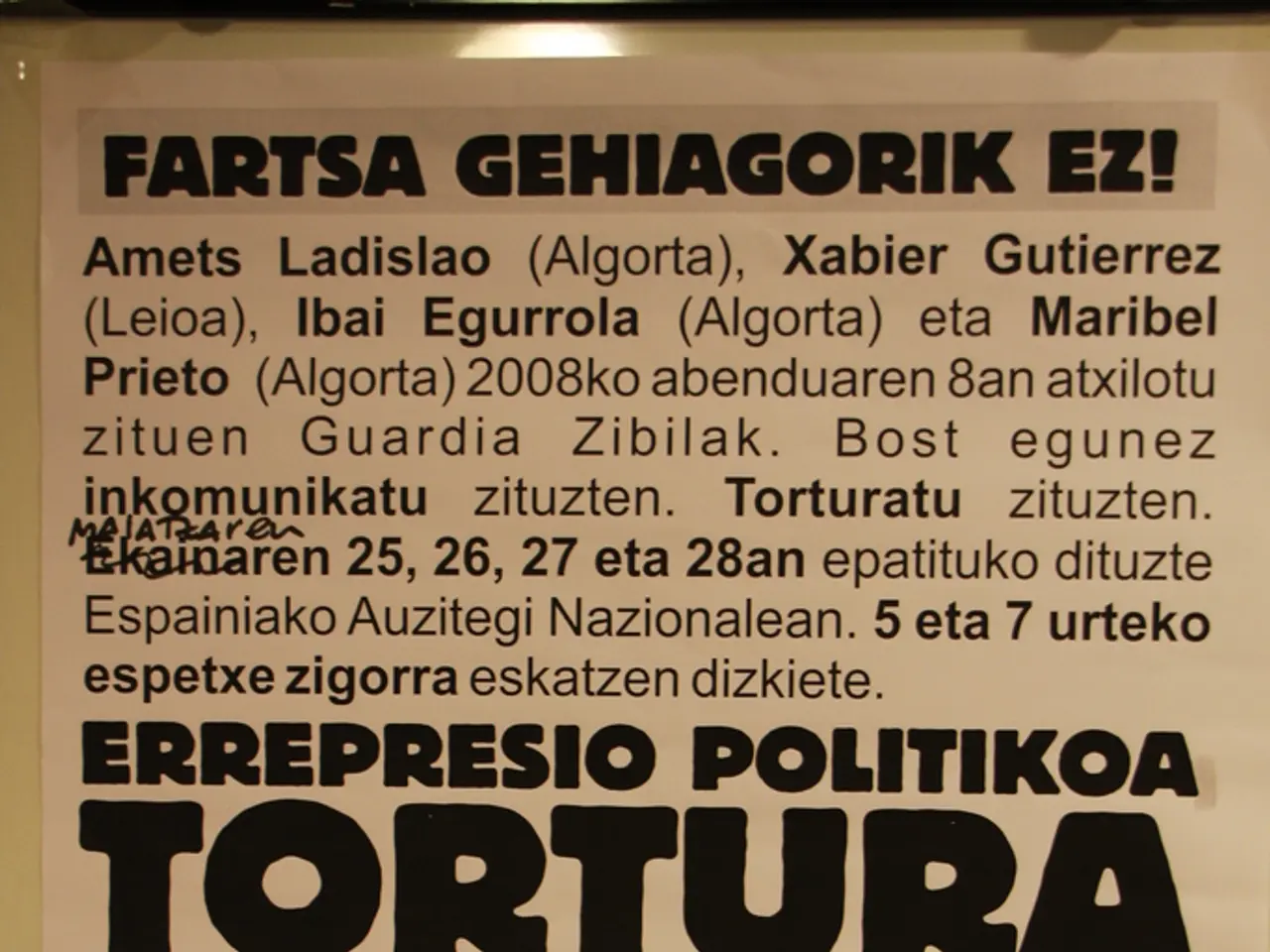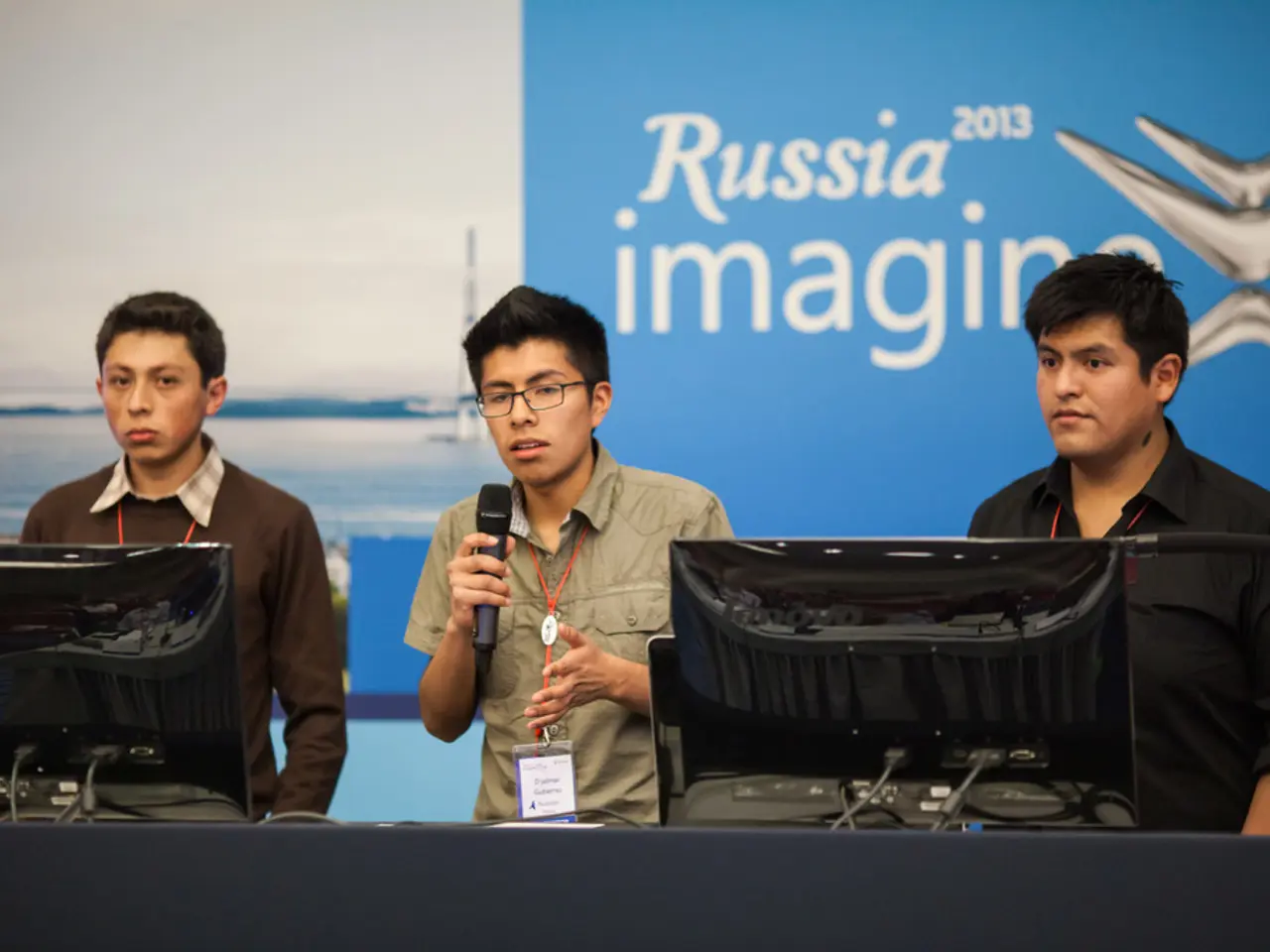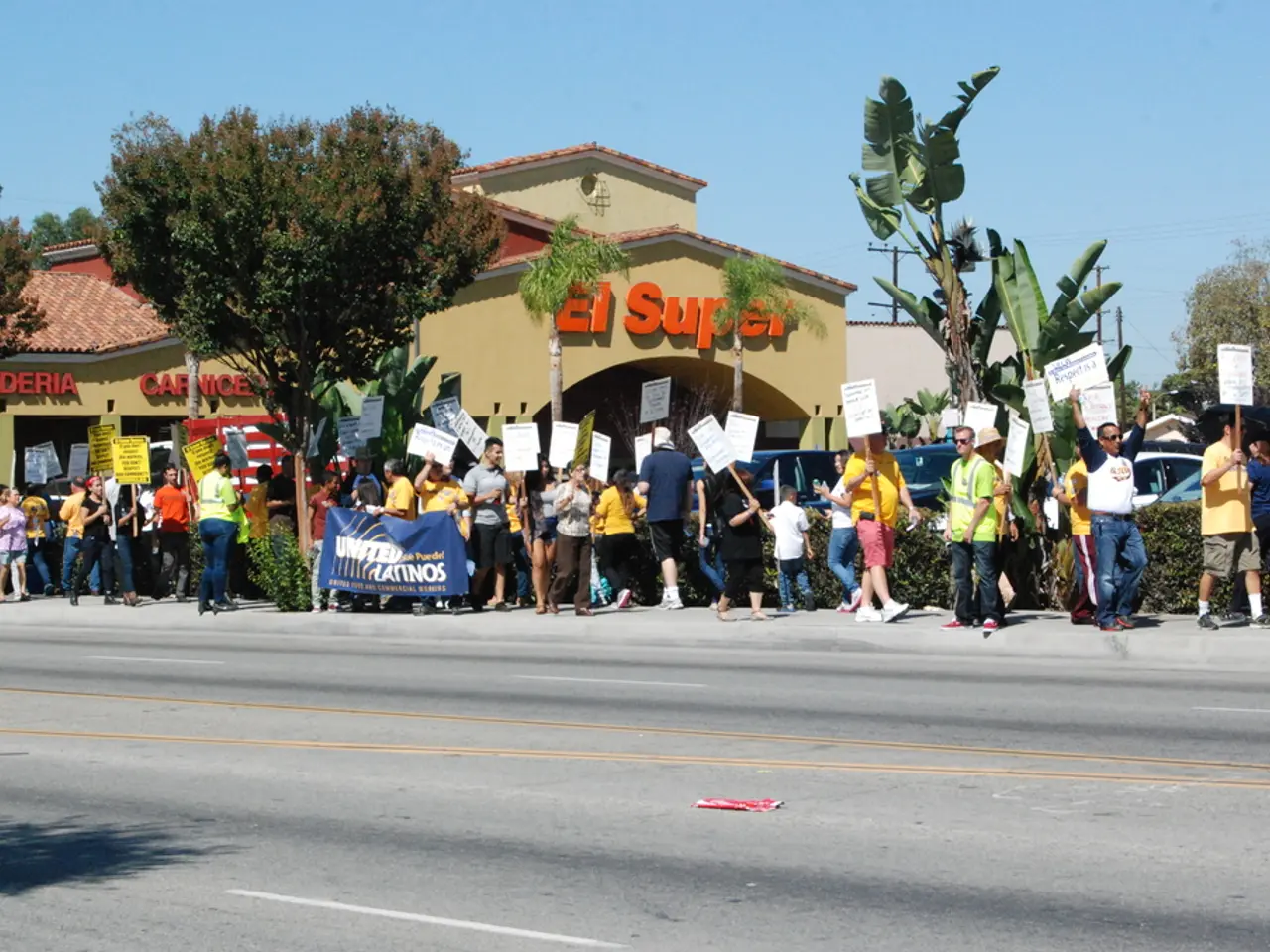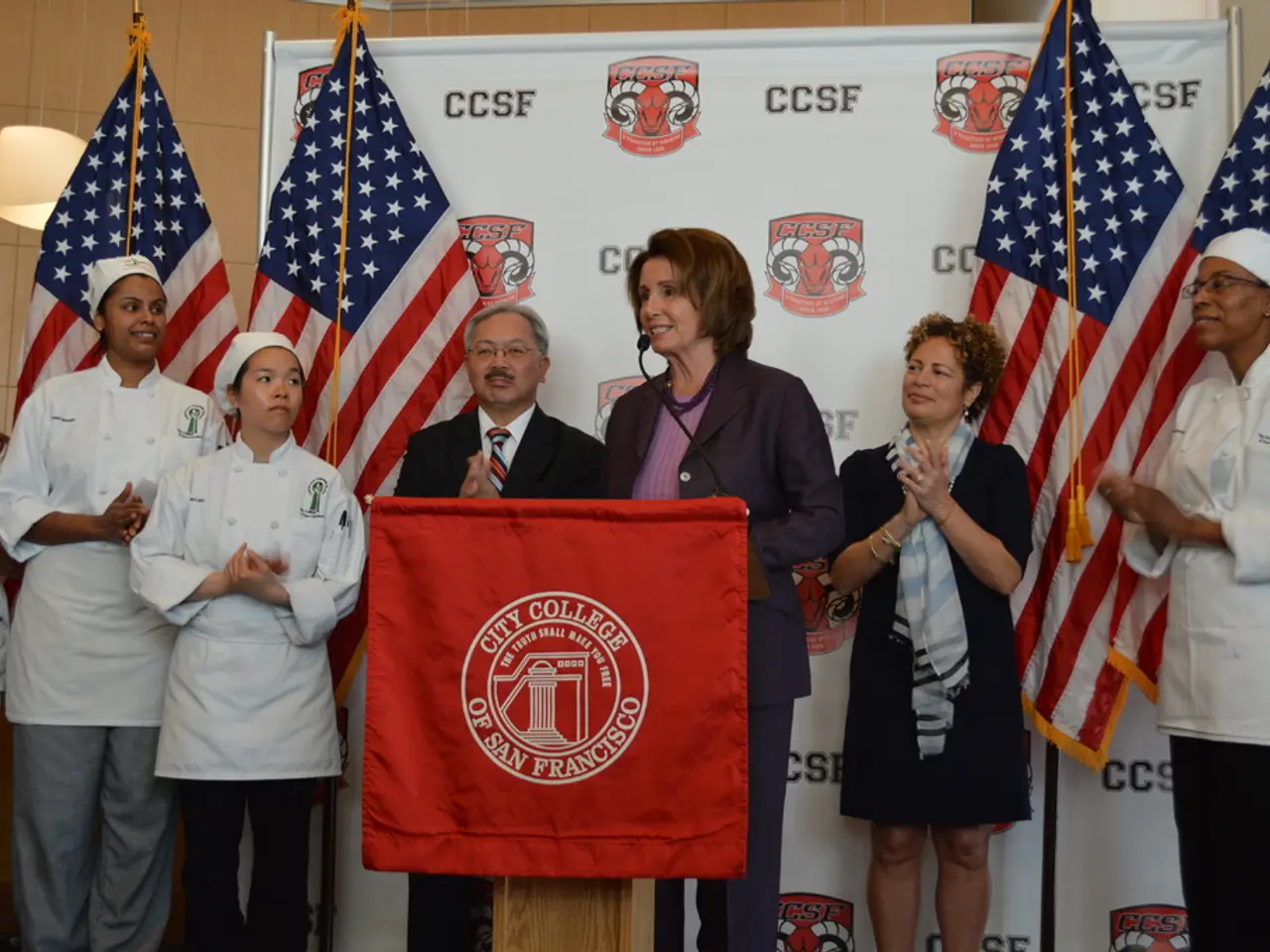Brazilian ex-President Bolsonaro facing home confinement
In a move that has escalated diplomatic tensions, US President Donald Trump has threatened to impose 50% tariffs on Brazilian imports, effective tomorrow. The decision comes in response to what Trump calls a "witch hunt" against Brazil's rightist leader, former President Jair Bolsonaro.
As of early August 2025, Bolsonaro is under house arrest, ordered by Brazil’s Supreme Court. The former president is facing trial for allegedly masterminding a coup plot to overturn the 2022 election results, which he lost to Luiz Inácio Lula da Silva. The charges detail an alleged criminal conspiracy involving plans to assassinate high-level political figures, dismantle democratic institutions, and incite unrest, supported by evidence from wiretaps and videos. Bolsonaro denies these allegations, calling it a political witch hunt.
Bolsonaro's house arrest includes wearing an electronic ankle monitor and severe restrictions such as no mobile phone use and limited visitors. These measures were imposed following Bolsonaro's breach of court-imposed restrictions by indirectly communicating with supporters through speeches and social media messages disseminated by family members.
The trial has deepened domestic political tensions in Brazil. The situation polarizes public opinion, with some criticizing Bolsonaro’s arrest as persecution, while others defend it as a necessary defense of democracy following the violent January 2023 insurrection by Bolsonaro supporters at government buildings. Lawmakers on the right have condemned the Supreme Court justice’s decision, comparing Bolsonaro’s case to previous presidents, while leftist politicians regard the arrest as a victory for Brazilian democracy.
Internationally, the case has triggered a diplomatic row with the United States. US President Donald Trump, a longtime ally of Bolsonaro, has condemned the prosecution as a "witch hunt," imposed a 50% tariff on Brazilian goods, and sanctioned Brazilian Supreme Court Justice Alexandre de Moraes under the Magnitsky Act. These actions have strained US-Brazil relations, with the Brazilian government rejecting these measures as interference in its judicial affairs.
The outcome of the trial could further impact Brazil’s domestic political stability and foreign diplomatic ties, particularly with the United States. As the trial continues, a verdict is expected by the end of 2025.
Meanwhile, Trump is also threatening higher tariffs on India, accusing it of buying "massive amounts of Russian oil" and reselling it "for big profits." These developments come as the US and Israel have backed a new plan to end the war in Gaza through one agreement rather than piecemeal truces, and negotiations over a global treaty to curb plastic pollution resume today, but opposition from the US and other oil-producing states has dimmed hopes for success.
- The diplomatic tension between the United States and Brazil escalated further with US President Donald Trump's threat to impose tariffs on Brazilian imports, following Trump's condemnation of the prosecution of Brazil's former President Jair Bolsonaro, who is currently under house arrest on charges of masterminding a coup plot.
- Amidst the ongoing trial of Bolsonaro, Trump's threats of higher tariffs on India and his accusations of India's resale of Russian oil have added another layer of complexity to the international landscape, potentially impacting US-Brazil relations and further straining diplomatic ties.






